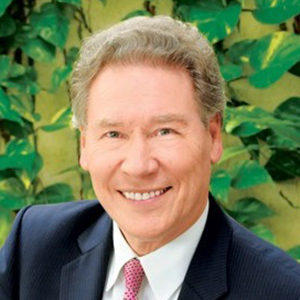
Despite the increasingly menacing global scene, foreign policy was largely missing from last year’s Canadian election debates and Throne Speech. Clearly, the subject isn’t a vote getter. Nor are minority governments known for taking bold new foreign policy initiatives, a point that was reinforced in the stay-the-course mandate letter to Foreign Affairs Minister François-Philippe Champagne released in late December.
But the world is changing fundamentally and requires brave new approaches. The Trump presidency has been a major catalyst, of course. The rise of China has been another. Meddlesome Russia, the nuclear ambitions of North Korea and Iran, and plenty of other trouble spots have further destabilized the international arena. Deadly attacks in Iraq at the start of the new year demonstrate how quickly dangers can escalate. Canada needs to take stock of its own capacities and goals if we want to make a difference in this new world.
Our current feminist foreign policy represents a noble and important expression of our values. But it doesn’t rise to the level of the geostrategic challenges we face. Foreign policy is about setting international rules and forming alliances that advance or at least protect our interests. These are all shifting now.
Advancing our interests will be neither cheap nor easy. NATO and NORAD are the linchpins of our security. But, on current commitments, our defence spending will never reach the eternally unfulfilled goal of 2 percent of GDP.
The world needs initiatives to address cybersecurity threats, the growing global debt problem and the yawning wealth gap. It also needs to manage escalating tensions between the US and China.
Instead, the government’s priority is to obtain a seat on the UN Security Council, though it’s unclear what we hope to achieve with it. Climate change isn’t the only issue. The world needs initiatives to address cybersecurity threats, the growing global debt problem and the yawning wealth gap. It also needs to manage escalating tensions between the US and China. With nuclear weapons pointed at each other, diametrically opposed security strategies and clear ideological and governance differences, their clash is unfolding as a new kind of cold war.
Cold wars aren’t good. They’re dangerous for countries caught in the middle, as Canada is now, because of the Huawei affair. But they’re certainly preferable to hot wars. Competition will lead to advancements in 5G, artificial intelligence, quantum computing, robotics, autonomous vehicles and so on. Unfortunately, all of these can and will be weaponized.
In the 1980s, Canada played an important role in negotiating confidence-building measures between NATO and the Soviet Union during the first Cold War. The goal was to avoid inadvertent global conflict and promote disarmament. There is no indication that we understand the need to start working on similar multilateral efforts to address today’s dangers. In fact, the opposition parties had to force the government to establish a House of Commons special committee just to take a more in-depth look at China.
So why is Canada’s foreign policy so noticeably off-point?
Perhaps it’s because we have a much deeper problem than just minority government. If the default position of a nation-state is nationalism, this past election underscores a core weakness: we are actually a nations-state (plural). And a deeply divided one at that. Of course, we’re not the only such country. But we have separatists in our Parliament again, coupled with growing western alienation and deeply dissatisfied Indigenous peoples. In other words, the government’s hands are full with domestic issues.
If reconciling all of this and resetting our foreign policy is too much to ask of a minority government, we should at least repair the wobbly and uncoordinated instruments of our international affairs.
What are these instruments? The key one is Global Affairs Canada, which houses the Canadian foreign service, operates Canada’s embassies and consulates around the world and is the repository of deep expertise in foreign policy. The last time it was reviewed was 40 years ago, by the McDougall Commission. Since then the department has been restructured so many times, it’s hard to keep track. As a source of expert advice, it has been degraded by central agency directives and a rotation of leaders without foreign service experience. Hundreds of positions sit vacant or are improperly staffed. Accountabilities for delivering programs around the world have become ever more unclear. Property assets have been sold off in a disastrous penny-wise, pound-foolish process that depicts a Canada in retreat. Not surprisingly, morale is abysmally low.
Other key instruments of our foreign policy include defence, intelligence, international development and immigration. These, too, deserve a coordinated re-examination. The Department of National Defence published its own policy review in 2017, called Strong, Secure, Engaged. It did so without the benefit of any overarching foreign policy review, thus weakening the principle of civilian control over the military.
And not without consequence. Deep foreign policy commitments to disarmament and arms control were lost in the shuffle, as the defence review announced to the world that Canada would now be building not just defensive but also offensive capacities in cyberwarfare. This profound move, which has no doubt raised the antennae of all strategic competitors, has led to a significant buildup of our intelligence agencies, as well. Yet measures to coordinate and control this activity have been haphazard at best.
How do we revitalize these foreign policy instruments and make them work in concert, especially in the midst of exponential technological change? That’s a big question, which merits careful consideration.
One suggestion would be for the government to ask the Senate to undertake a broad and inclusive review of these instruments and how they operate both at home and abroad. We have skilled former diplomats in the upper chamber and, with a potentially unstable House of Commons, it would make sense to draw on the Senate’s resources for a nonpartisan review leading to recommendations for improvements.
Could Canada pursue its global interests in a more effective way? We had better start getting our house in order and find a yes answer soon.
Photo: Shutterstock, by Rawpixel.com
Do you have something to say about the article you just read? Be part of the Policy Options discussion, and send in your own submission. Here is a link on how to do it. | Souhaitez-vous réagir à cet article ? Joignez-vous aux débats d’Options politiques et soumettez-nous votre texte en suivant ces directives.








